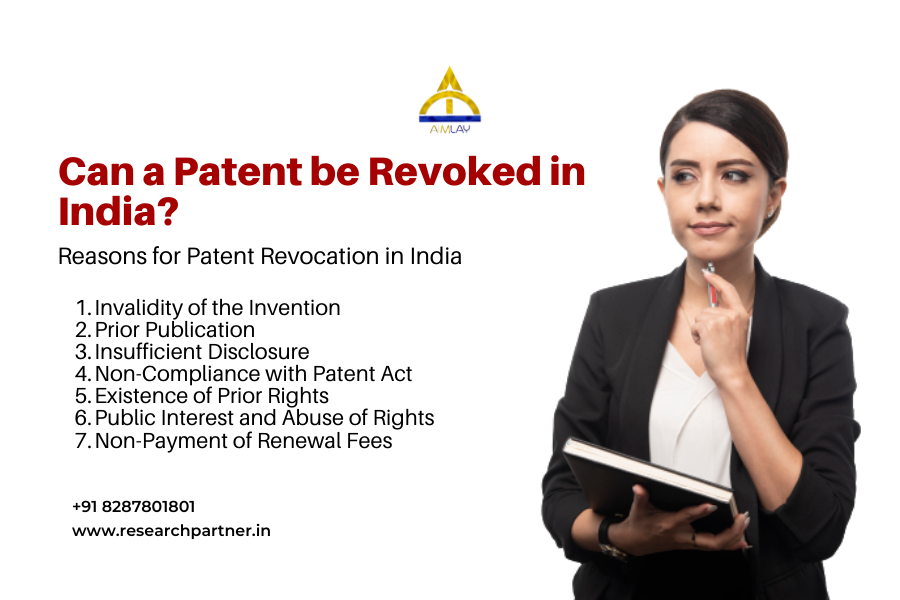Table of Content
Introduction
Innovation, development, and research are the driving forces of the modern world. As a result, protecting new ideas and inventions is crucial. One way to safeguard these ideas is through patent publication. In this blog, we’ll take a closer look at patent publication in India, how it works, and answer some frequently asked questions.
Why is a Patent Required?
A patent is an exclusive right granted for an invention that is novel, inventive, and useful. It provides the owner the right to prevent others from making, using, importing, or selling the invention without their permission. Patents protect the rights of inventors while encouraging innovation, technological advancement, and competition in the market.
Patent Publication India
Patent publication India is governed by the Patent Act, passed in 1970. It allows inventors to hold the exclusive right to an invention for 20 years from the date of filing. Subsequently, anyone can exploit this invention provided they obtain a license from the patent holder.
The Indian Patent Office releases a patent publication journal every week, which contains details of new patent applications, granted patents, and patent amendments. This act ensures that all inventions in India are publicly available, promoting knowledge exchange and encouraging innovation.

Can a Patent be Revoked in India?
Yes, a patent can be revoked in India. A party can approach the Intellectual Property Appellate Board (IPAB) and file a petition for revocation, challenging the validity of the patent. The board will investigate the petition and decide if the patent should stand or not stand.
Reasons for Patent Revocation in India
A patent grants exclusive rights to an inventor for their invention. However, there are certain circumstances under which a patent may be subject to revocation. In India, the Intellectual Property Appellate Board (IPAB) has the authority to revoke a patent based on valid grounds. Let’s explore some of the reasons for patent revocation in India.
- Invalidity of the Invention: If it is discovered that the invention does not meet the criteria for patentability, such as lack of novelty, inventiveness, or industrial applicability, the patent may be revoked. The invention should be new, non-obvious, and capable of being produced or used in an industry.
- Prior Publication: Patents are granted to inventions that are novel and not previously disclosed to the public. If it is found that the invention was already published or publicly disclosed before the filing of the patent application, the patent may be revoked.
- Insufficient Disclosure: Patent applications must include a complete and clear description of the invention, enabling a person skilled in the field to replicate it. If the patent lacks sufficient disclosure or the description is ambiguous, it may be subject to revocation.
- Non-Compliance with Patent Act: Inventors are required to comply with the provisions of the Patent Act during the application and post-grant stages. Failure to comply with formalities, disclosure requirements, or any other provisions stipulated in the act can lead to patent revocation.
- Existence of Prior Rights: If it is demonstrated that someone else had already developed or used the invention before the filing of the patent application, and their rights were not acknowledged or accounted for, the patent may be revoked.
- Public Interest and Abuse of Rights: Patents are granted to encourage innovation and benefit society as a whole. If it becomes evident that the grant of a patent is being used to undermine public interest or restrict competition, the patent can be revoked in the interest of the public.
- Non-Payment of Renewal Fees: In India, patents require periodic renewal fees to maintain their validity. If the inventor fails to pay the required fees promptly, the patent may be revoked.
It is important to note that the revocation of a patent requires legal proceedings initiated by interested parties before the IPAB. The IPAB examines all the relevant evidence and arguments presented before deciding on whether to revoke the patent.

Does an Indian Patent Give Protection Worldwide?
No, an Indian patent does not give protection worldwide. However, India is part of the Patent Cooperation Treaty (PCT), which is an international agreement that allows inventors to apply for a patent simultaneously, protecting their invention in multiple countries. It’s advisable to seek legal advice while applying for an international patent.
How Much Time Does It Take to Get a Patent in India?
The patent application process in India is lengthy and complex. It usually takes around three to five years for a patent to be granted. However, the time frame can vary depending on several factors, such as the complexity of the invention, examination speed, and the number of patent applications in the queue.
Patent Application Process in India
The patent application process in India comprises several stages. Firstly, the inventor must file a provisional application. Later, they must file a complete specification, describing the invention in detail. Following this, the Indian Patent Office examines the application, and if the invention is worthy of being patented, it is granted.
How Much Does It Cost to Get a Patent in India?
The cost of obtaining a patent in India can vary, depending on the type and complexity of the invention. The total cost can range from INR 10,000 to INR 80,000 approximately. This cost includes Advocate fees, official fees, and other legal charges.
Aimlay offers exclusive affordable pricing options for your article/book publishing process.
Conclusion
In the end, obtaining a patent publication in India is essential for inventors as it provides exclusive rights to an invention, allowing them to prevent others from making, selling or importing the invention without permission. However, obtaining a patent requires meticulous planning, hard work, and patience. Applicants must be thorough in their application as the Indian Patent Office takes its time to evaluate the invention’s novelty, usefulness, and inventiveness. Mostly, Legal assistance is advisable to navigate the complexities of the patent application process.
Frequently Asked Questions
Patent Publication is the act of releasing a public document disclosing the details of an invention once it has been filed in the patent office.
The Indian Patent Act is the law governing patents in India, enacted in 1970.
A Patent lasts for 20 years from the date of filing in India.
Any person, including a company or an inventor, can file a patent application in India.
The Patent Cooperation Treaty (PCT) is an international agreement allowing inventors to file a single patent application that is valid in more than 150 countries worldwide.






